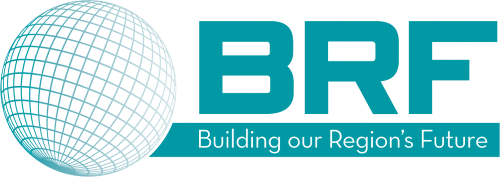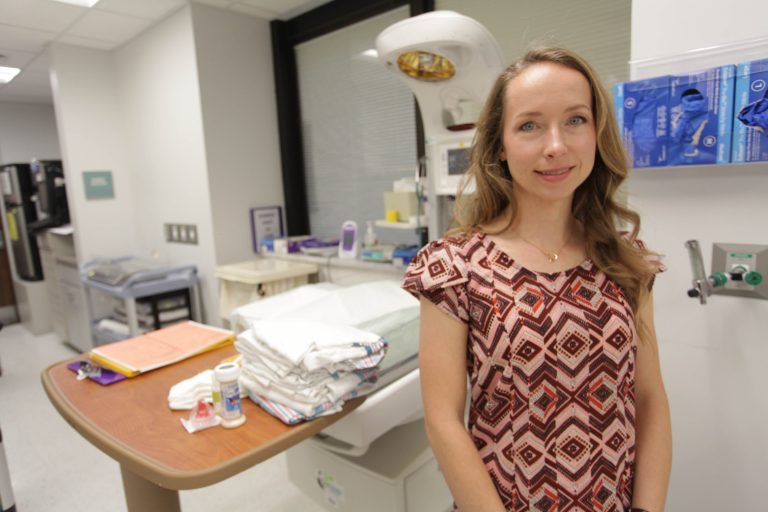New mentor and breastfeeding education programs set to start at University Health
To combat Louisiana’s low national ranking in breastfeeding rates, University Health in Shreveport has developed new programs aimed at addressing negative stereotypes and misinformation.
Mentor support and education initiatives, set to begin this month, start with new mothers who give birth at University Health and extend to mom, infant and their families after the hospital stay.
“Many mothers lack a single support person experienced with breastfeeding, so when trouble arises, it’s very difficult for them to reach their breastfeeding goals,” said Monika Thompson, Project Manager and neonatal nurse practitioner at University Health. “This program will supply trained peer counselors to encourage mothers and refer them to even more help, such as a lactation consultant here at the hospital.”
An education component will coincide with the support program, providing moms with information during their hospital stay about the benefits of breastfeeding for both mother and child.
“For an infant, breastmilk is the optimal food. It’s what babies are built to take in,” Thompson said. “Breastmilk has growth hormones, protects from infections, and it contains stem cells and vitamins and minerals we can’t reproduce in formula.”
Thompson said breastfeeding can lower an infant’s risk of Sudden Infant Death Syndrome, or SIDS, by about 30 percent, and greatly increases an infant’s health overall. For moms, breastfeeding can help prevent or decrease the severity of postpartum depression, heart disease, diabetes and decreases blood pressure, she said.
Mentors, women who’ve had positive breastfeeding experiences, will be paired with University Health moms in the first, critical days after they leave the hospital. Group meetings also are planned to begin in the fall in hopes of building a lasting community support system for all mothers.
The mentor and education programs are a part of University Health’s Golden Opportunity initiative launched in 2014 to promote breastfeeding as a powerful health and nutrition improvement behavior. The programs are a continuation on University Health’s road to becoming a designated Baby-Friendly Hospital.
Baby-Friendly Hospitals, accredited by Baby-Friendly USA, are birthing centers that offer optimal level of care for infant feeding and mother/baby bonding. Baby-Friendly USA follows a global framework of initiatives designed by the World Health Organization and the United Nations Children’s Fund.
Thompson said University Health will be eligible for the designation by late 2017.
“We, along with several hospitals in the state, are seeking this designation as a structured way to improve our processes and quality of care. Our breastfeeding rates here are a fraction of what the average is in the nation and even the state,” Thompson said.
Since the initiative’s launch, the number of infants fed breast milk during their stay at University Health has more than doubled and the rate of devastating intestinal infections at the hospital’s neonatal intensive care unit has fallen, Thompson said.
According to the Centers for Disease Control, just 57 percent of Louisiana infants have ever been breastfed. The national average is 79 percent.
Breastfeeding is medically proven to decrease rates of severe or fatal infant illnesses, according to the CDC. For mothers, it can prevent or decrease the severity of many chronic conditions affecting Louisianians at a disproportionately high rate, such as diabetes, heart disease and obesity.
“The long range goal for these programs is better health in this community. We know breastfeeding is tightly linked to these issues affecting our population,” Thompson said. “And babies get the best start they can and improve their health for the length of their lives. They grow up healthier, smarter, with fewer diseases and we increase the health over each generation.”
Another long range goal for breastfeeding programs at University Health is an overall culture change, Thompson said.
“Biases about breastfeeding are strong within our population. There’s a lot of misinformation and negative stereotypes to dispel. Children don’t grow up weaker because they breastfed – it’s quite the opposite. They grow up stronger,” Thompson said. “We want moms to feel comfortable around their peers and families when they breastfeed, and we want them to feel comfortable out in the community as well. Part of the education and support programs includes working to identify businesses that support moms who breastfeed and building a network.”
The peer mentor program and community support elements are made possible by a $30,000 grant from the Carolyn W. and Charles T. Beaird Family Foundation.
Community outreach and the recruitment and support of participants and stakeholders will be supported by a grant from the Community Foundation of North Louisiana and the United Way of Northwest Louisiana Grant Fund, housed at the Community Foundation. The CFNLA grants, totaling $18,500, will help develop a sustainable breastfeeding support network beyond a mother’s hospital stay.
Both awards will be administered by Biomedical Research Foundation (BRF) on behalf of University Health.
“This extension of University Health’s breastfeeding initiative would not have been possible without the generous support of the Community Foundation, United Way and the Beaird Foundation. Thanks to their contribution and the work of University Health, new mothers will get the guidance and mentorship needed to help them continue to make the choice to breastfeed their infants for the health of both mother and child,” said John F. George, Jr., M.D., President and CEO of BRF.
University Health Shreveport’s Lactation Department recently was recognized by the International Board of Lactation Consultant Examiners and International Lactation Consultant Association for excellence in lactation care.


